The ABC’s David Taylor published an article on Friday warning that Australia’s economy is stalling, pointing to higher unemployment in the months ahead.
Taylor cites some leading economists who believe Australia’s job market has turned the corner, as evidenced by slowing business activity in addition to the uptick in the unemployment rate.
“I absolutely think the jobs market is slowing right down”, CreditorWatch chief economist Anneke Thompson told the ABC.
CreditorWatch monitors monthly business activity by examining the total value of all invoices issued by organisations.
The agency’s January Business Risk Index data revealed a continuing reduction in the average value of B2B (business-to-business) invoices in 2023 and January 2024.
Based on this data, Thompson concluded that businesses were doing less and didn’t require as many employees.
“We can see a significant slowdown in business activity, and there are other indicators like NAB’s business sentiment survey, which shows business conditions are falling and business confidence has been quite low for some time”, she said.
“I think that all those signs tell us that businesses are expecting much weaker conditions at least for the first six months of this year”.
Nicole Gorton, director at global recruitment agency Robert Half, told the ABC that firms are now preferring to hire staff on a temporary or contract basis rather than create a new role.
Business groups have also expressed concern about the lack of enthusiasm for hiring employees.
“We are seeing a significant slowdown of employment across Australia with the latest figures, and unless we get serious about addressing business conditions, the economy will continue to slow — and that’s bad for workers and bad for businesses”, Business Council of Australia chief executive Bran Black said.
The data is unequivocal: Australia’s economy is slowing fast.
The latest household spending indicator from the Australian Bureau of Statistics (ABS) points to lower household consumption and GDP growth in the December quarter (chart from Justin Fabo at Antipodean Macro):
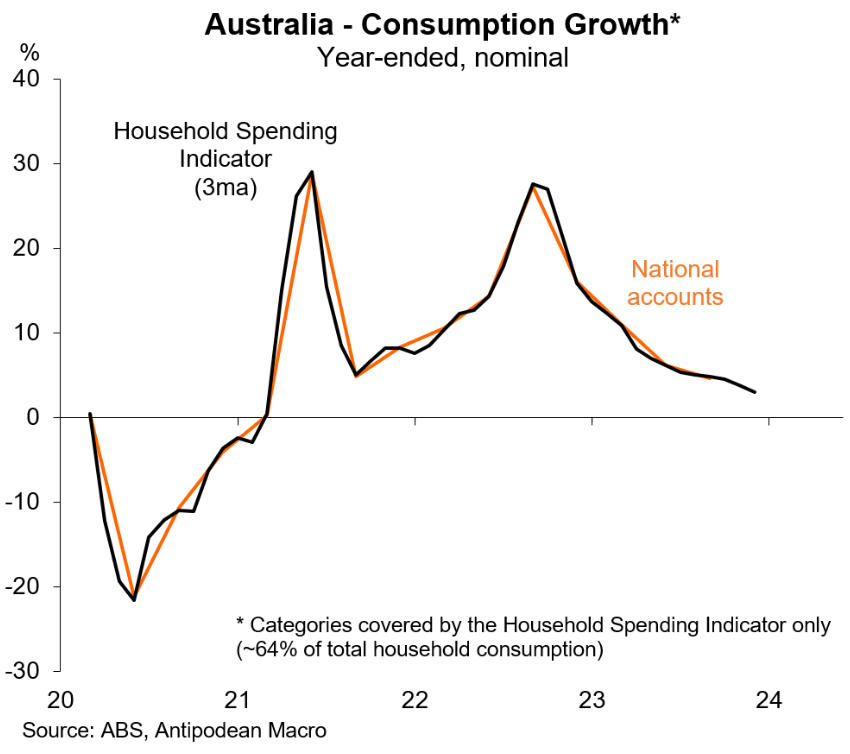
As expected, discretionary items have driven the decline in household consumption spending:
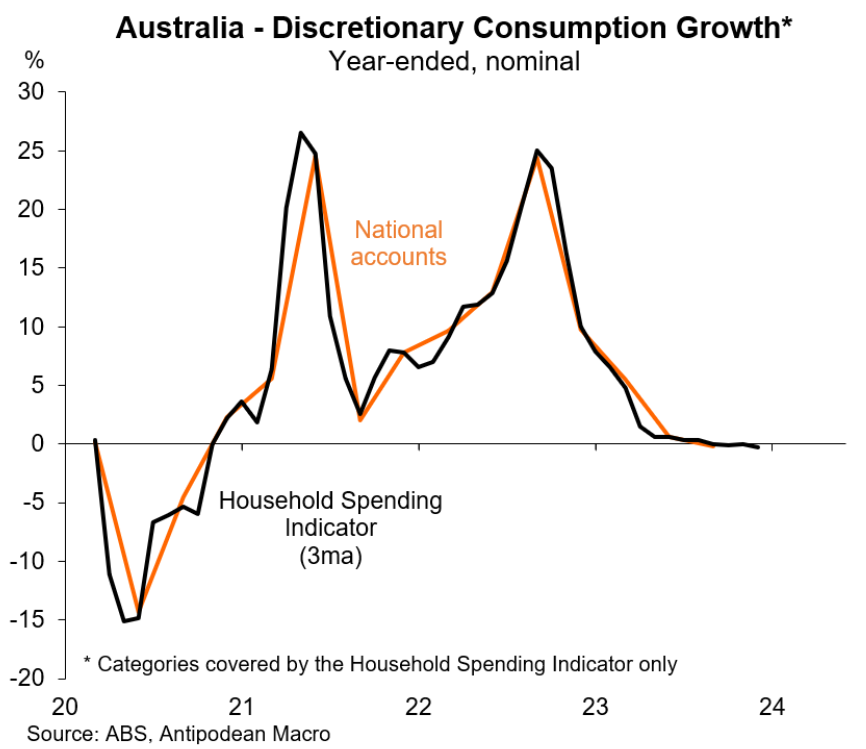
The latest NAB business survey reported a sharp slowing in forward orders, which also points to slower demand and growth across the economy:
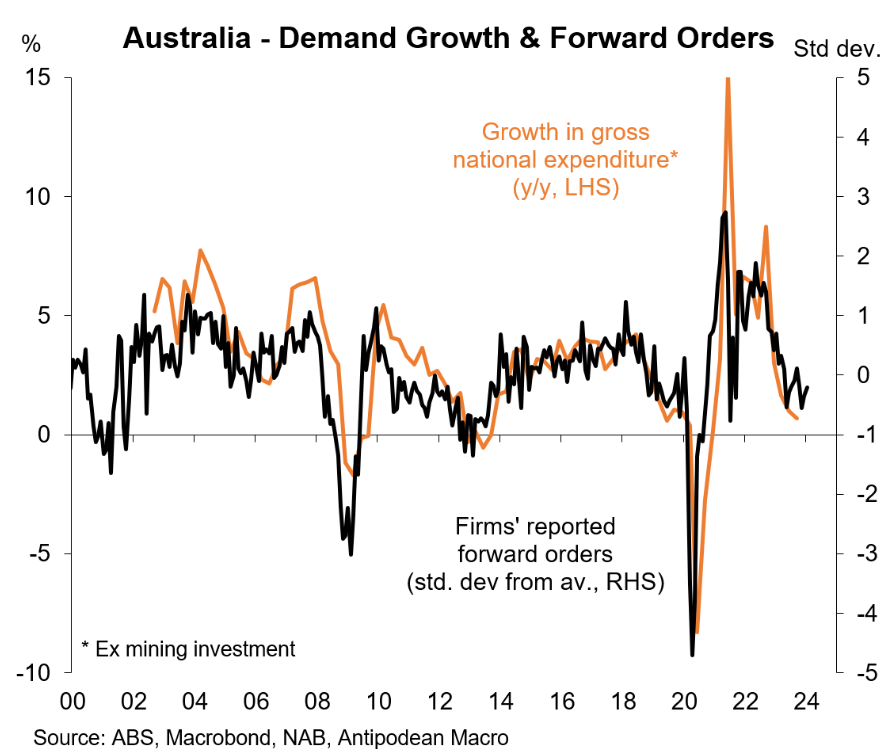
The NAB business survey also reported a further slowing in employment growth in January:
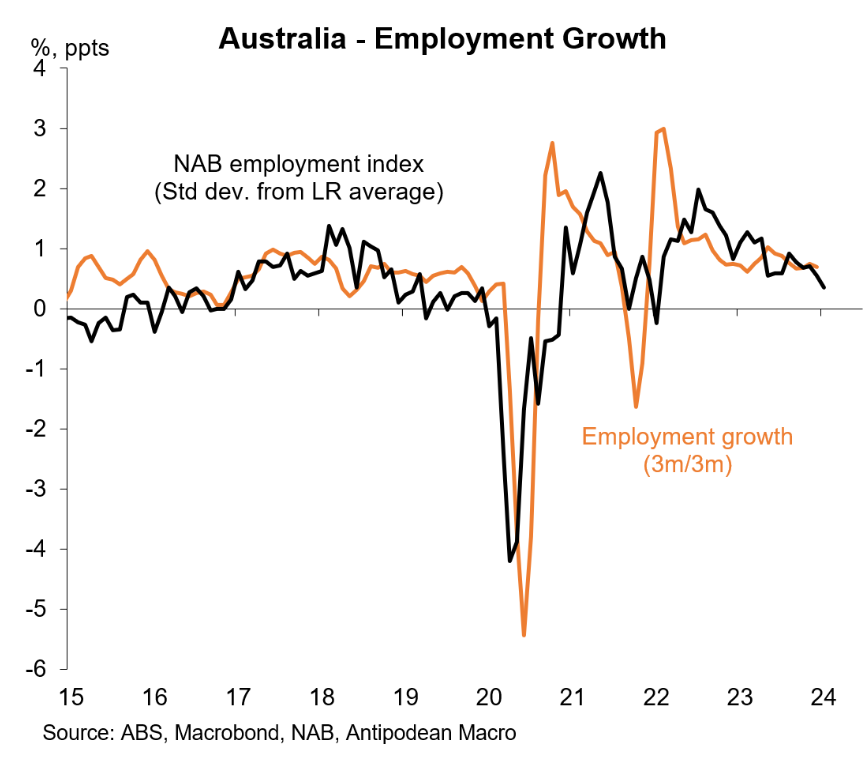
Meanwhile, last week’s ABS labour force survey for January showed that actual employment growth has slowed to a crawl, with just 10,200 jobs created over the quarter, the softest pace since the ‘delta’ outbreak in 2021:
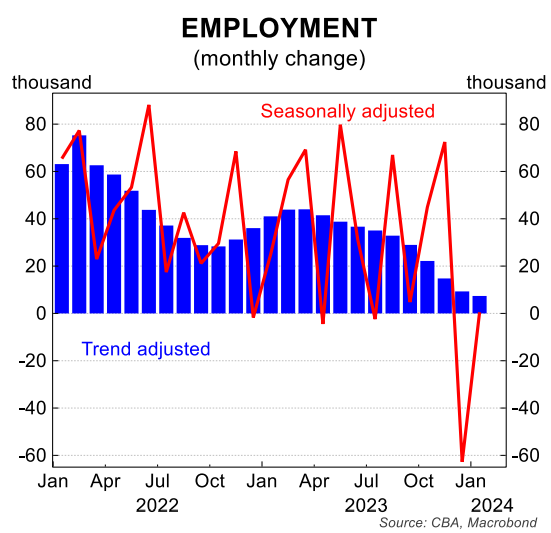
There has also been a pivot from full-time jobs (-0.4% QoQ; -41,200) to part-time jobs (+1.2%; +51,400 QoQ).
For this reason, the number of hours worked across the economy has fallen for around 6 months and is only 0.7% higher year-on-year:
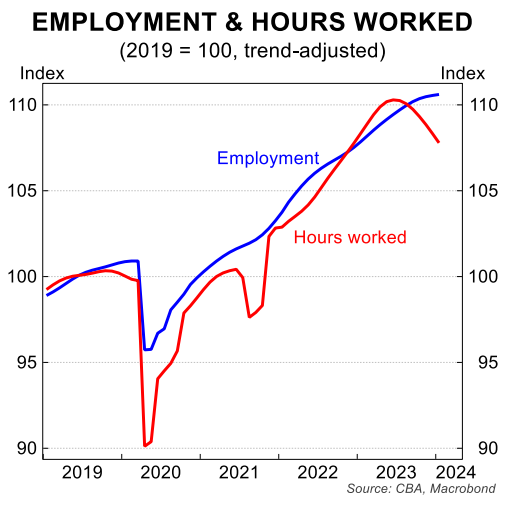
This compares to 2.9% (634,000) growth in the working age population in the year to January:
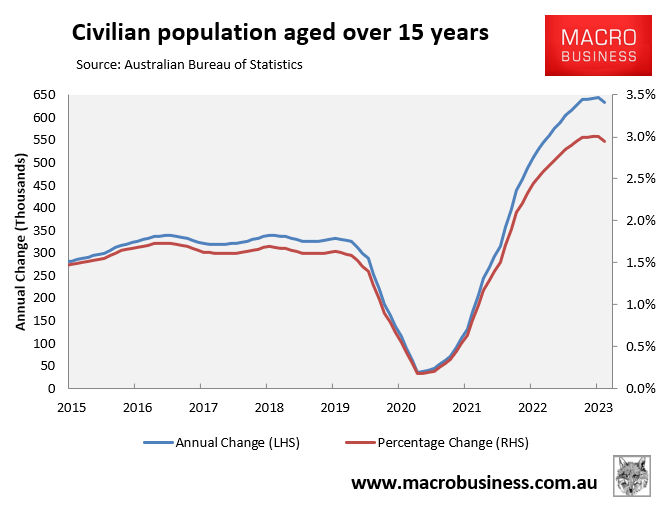
Australia needs to create around 35,000 jobs per month to keep pace with population growth (assuming a stable participation rate).
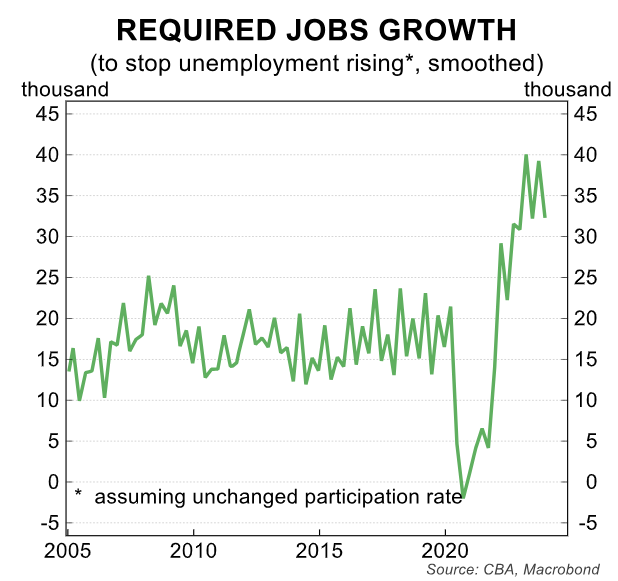
With the economy in a per capita recession amid high interest rates, Australia has no hope of achieving such jobs growth.
The upshot is that unemployment will continue to rise, likely more quickly than the RBA has projected.
The latest RBA Statement of Monetary Policy projected an unemployment rate of 4.3% by the end of 2024, only 0.2% above the current level.
I believe Australia’s unemployment rate will be closer to 5% by year’s end.
Accordingly, the RBA will be forced to cut rates in the second half of the year to stem the bleeding.

